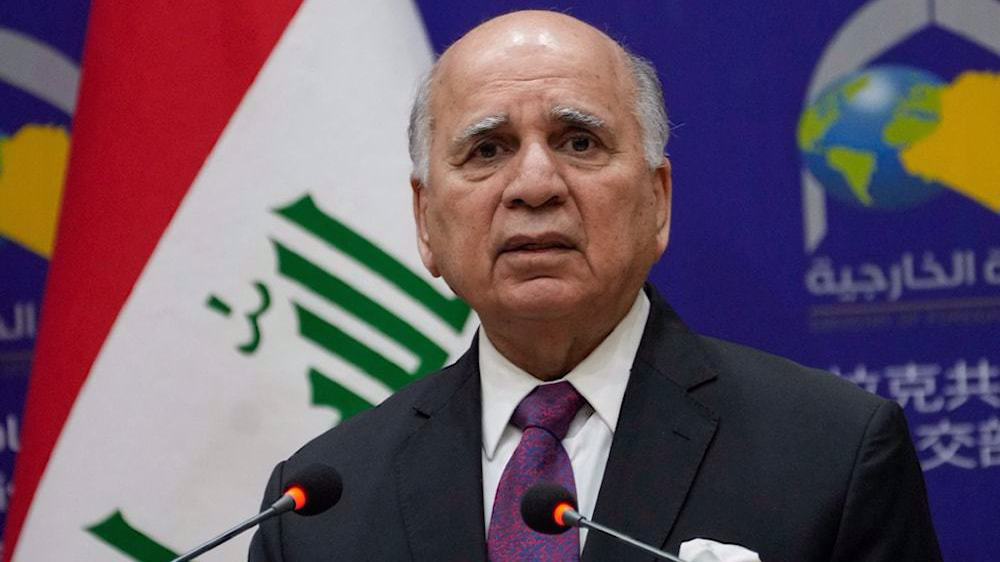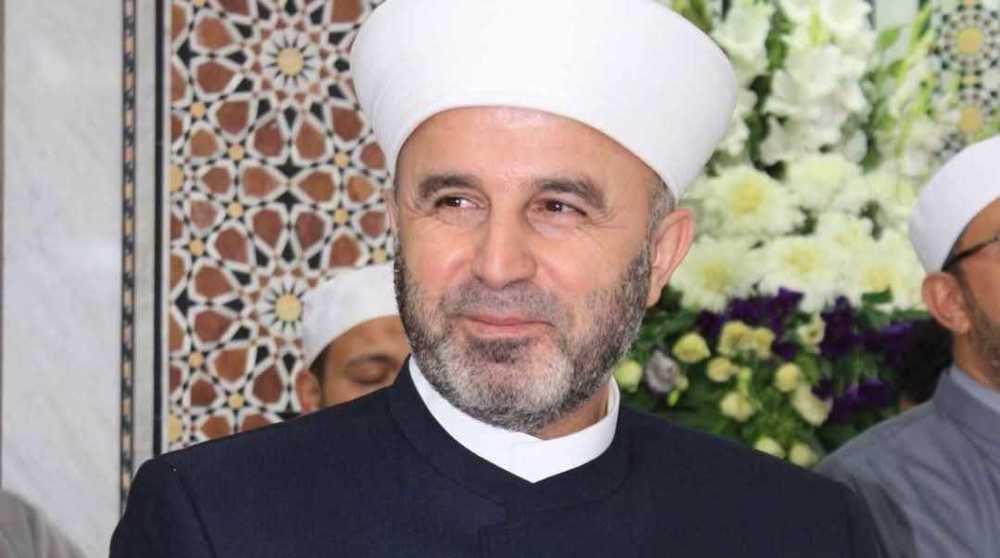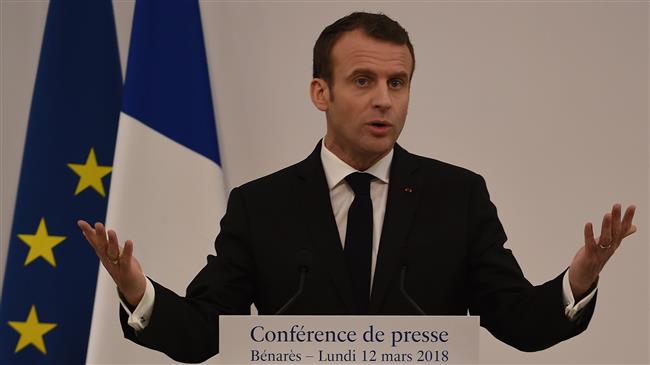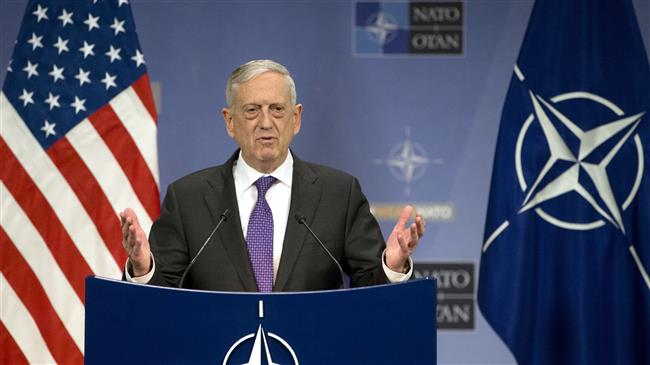US military threat meant to provoke terrorists to launch chemical attack: Syria
Syria’s UN envoy has slammed his American counterpart for threatening military action against the Arab country over chemical attack claims, saying such comments are merely aimed at provoking a chemical attack by terrorists and fabricating evidence against the Damascus government.
Earlier, US Ambassador to the UN Nikki Haley had warned that if the Security Council fails to act on Syria, Washington is ready to act on its own, just as it did last year when it bombed a Syrian government airbase, which Washington claimed was used for a sarin attack.
In response, Syria’s envoy to the UN Bashar al-Ja’afari said at a UN Security Council (UNSC) meeting on Monday that Haley’s comments were irresponsible and in violation of the UN Charter.
Haley’s remarks, Ja’afari said, “serve as direct provocation to terrorist groups to use chemical weapons and fabricate evidence in order to accuse the Syrian army of it,” the official SANA news agency reported.
“As the Syrian Arab Army advances in its war on terrorism, countries that support terrorism have been launching misleading propaganda campaigns to divert attention from the aggression and terrorism Syria is confronting,” he said.
In recent weeks, the Syrian army, backed by Russian air power, has been engaged in a military operation to liberate Eastern Ghouta from a host of militant groups, including the notorious al-Nusra Front, which have been using the Damascus suburb as a launch pad for deadly attacks against the capital.
Amid the army gains, a report by pro-militant sources claimed earlier this month that a chemical attack had taken place in Eastern Ghouta in late February.
Building on those claims, the US and its allies, especially France and Britain, have been pointing the finger of blame at the Syrian government.
Washington, London and Paris have said they would strike Syria if the chemical attack allegations are proven.
Both Russia and Syria have rejected the allegations.
On Monday, Russia said the Syrian military has found a workshop used by foreign-backed militants to make chemical weapons in a recently-liberated area in the Eastern Ghouta.
Last year, a suspected sarin gas attack hit the town of Khan Shaykhun in the northwestern Syrian province of Idlib, taking at least 80 lives.
Accusing Damascus, the US then launched several dozen Tomahawk cruise missiles at a Syrian airbase, which the opponents of the Syrian government claimed was used as the launch-pad for the alleged gas attack, taking the lives of about 20 people, including both Syrian soldiers and civilians.
Ja’afari reminded Haley that back then the Organization for the Prohibition of Chemical Weapons (OPCW) and the UN refused to take samples from the attacked air base “because if it did, the Syrian government would be proved to have no responsibility for Khan Shaykhun chemical incident and what the US has done is considered an aggression.”
Ja’afari further called upon the US, British, and French representatives to stop breaching the UNSC counterterrorism resolutions and ask their respective governments “not to provide support to the terrorist groups in Syria or cover up their ongoing crimes against the Syrian people.”
The Syrian official, meanwhile, said since the adoption last month of the UNSC Resolution 2401 that mandated a ceasefire in the Arab country, Damascus had taken many measures to alleviate the suffering of civilians in Ghouta, including opening two humanitarian corridors to ensure their safe exit.
He, however, said those measures have been impeded by terrorist groups “and their operators, some of them members at the Security Council.”
The terrorists, he said, had used the countryside to launch more than 2499 mortar and rocket shells on Damascus, killing 70 civilians, and were preventing non-combatants’ exit through the humanitarian corridors.
Hot water and sewage: Palestinians share harrowing tales of torture in Israeli prisons
VIDEO | Thousands evacuated in Ethiopia amid earthquakes, volcanic eruption fears
Revealed: Israeli ministers eye restoration of illegal settlements in Gaza through genocide
How Los Angeles’ pistachio tycoons facilitated and profited from wildfires
Iraqi PM: Iran was in Syria to fight terrorism; presence requested by Damascus
Hamas: Israel's massacre in Jenin camp won’t break resistance
60 bodies recovered from abandoned South African gold mine: Police
Biden administration ‘quietly’ circumnavigating own ban on TikTok: Report















 This makes it easy to access the Press TV website
This makes it easy to access the Press TV website